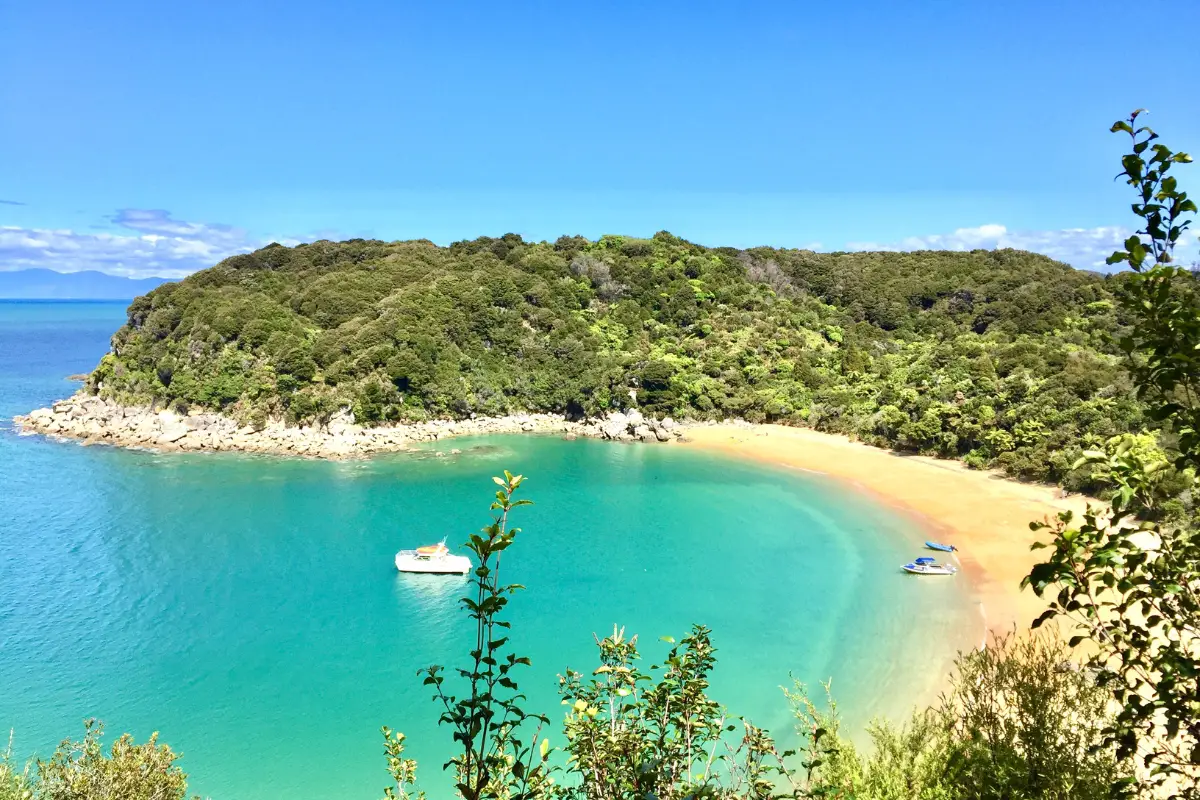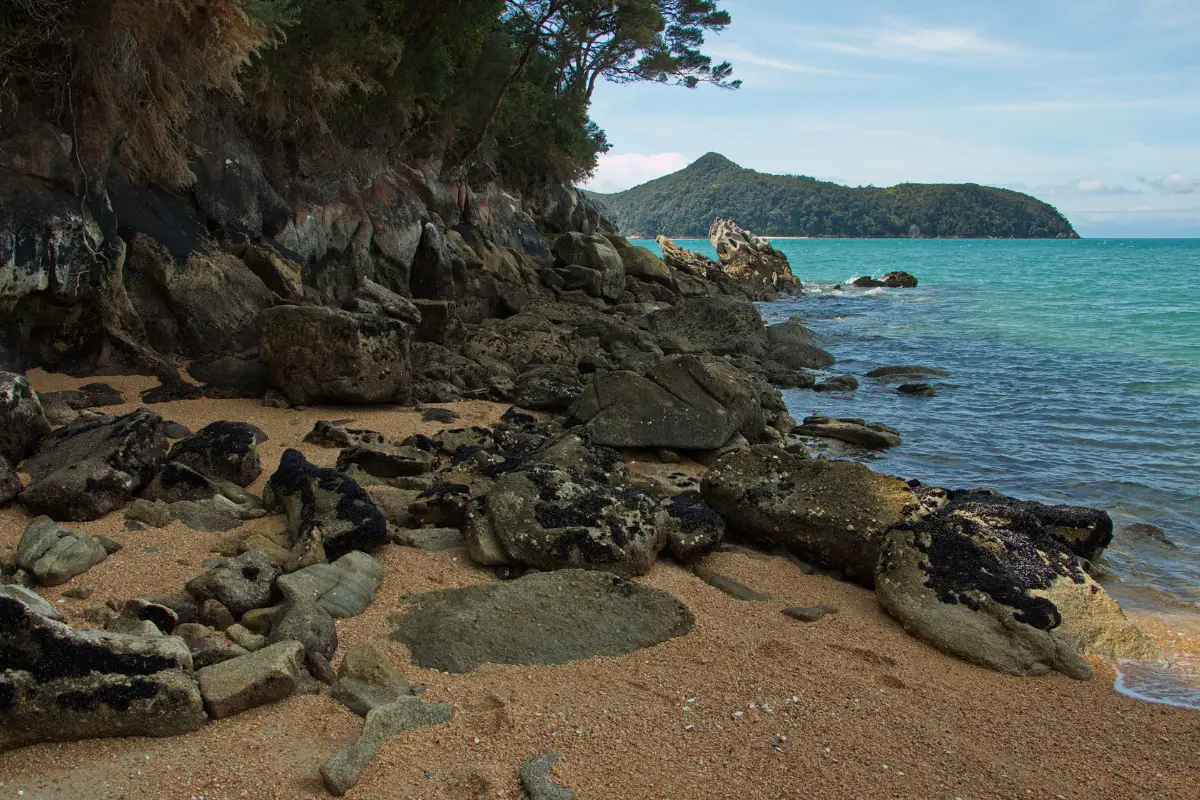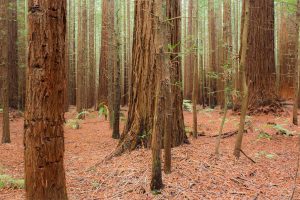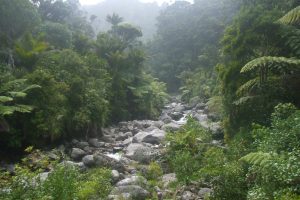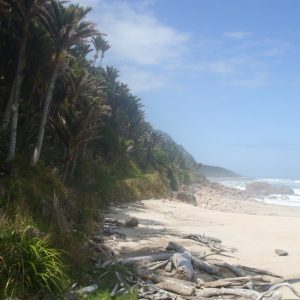I laced my boots and set off for Bark Bay to Anchorage at the first light of dawn, as the peak of the Abell Tasman Coast washed over me. Golden beaches and bushland had lured me from my hostel bed in Nelson and into this particular hiker’s dream.
Table of Contents
ToggleWith every step, I heard fantails chirping and nikau palms rustling as I walked through New Zealand’s wilderness.
This was no walk in the park; this was more than that. It had been a personal search for tranquility in the midst of nature’s symphonies.
Let us face it: if you are looking through your feed for an adventure that will have your pulse racing faster than the weka going downhill, you have hit the jackpot.
Imagine trekking over suspension bridges as turquoise waves play tag with the sand shores below. That is what I saw as I strolled along coastal cliffs, through native forests, and across tidal creeks—all of them postcard-perfect vistas that made me’ wish you were there’.
Trust me when I say that each snapshot along this track is worth a thousand steps. Stay tuned, because what comes next is not just a slice of paradise but a full-on banquet for the senses!
Key Points You Need to Know.
1. I found the Abel Tasman Coast Track between Bark Bay and Anchorage to be an incredibly scenic section of the trail, providing stunning coastal views. The path is well maintained and marked, so it is accessible for hikers of moderate fitness levels. While trekking, I was surrounded by native bush and could also audibly hear the sounds of local birdlife, which further enhanced the immersive natural experience.
2. I hiked along the high tide track—a bit more challenging but good to see the scenery. It is only accessible at specific times, so check tide times before planning a hike. I timed my walk so I wouldn’t get sucked in by the rising water.
3. Among the highlights of my trip was crossing the suspension bridge across the Falls River. This added a sense of adventure and allowed for fantastic photo opportunities with sweeping views of the area. The bridge was safe and strong, so it was easy to cross even for those wary of heights. The rushing sound of the water below and the gentle sway of the bridge made the experience even more thrilling. After crossing, I took a moment to admire the serene landscape and noticed the cozy river’s edge resort cabins nestled along the banks, blending perfectly with the natural surroundings. It was the ideal spot to unwind after an adventurous day of exploring.
4. I liked that there were several rest areas around the track where I could stop for a snack or lunch and take pleasure in the views. These spots had basic amenities like benches and toilets, so as not to disturb the natural setting. It’s advisable to carry sufficient water and food since there are no shops along the way.
5. When I approached Anchorage, I saw it had been popular with kayakers and hikers because of the sheltered bay and also the golden sandy beach. I didn’t kayak myself, but watching others paddle around the clear water showed me just how versatile this particular area was for outdoor pursuits aside from hiking.
Preparing for the trek from Bark Bay to Anchorage.
I had been cautiously excited when I set off on the Abel Tasman Coast Track. Water and snacks were my first priorities because there were so few sources along the way.
As someone who loves being prepared, I double-checked my gear and my footwear for the sandy and uneven terrain.
Crossings and Planning of Tidal Streams.
It is not possible to hike from Bark Bay up to Anchorage and not factor in the tides.
Timing the estuary crossing was vital, or I might have had to take long detours.
Consulting the tide tables became part of my planning, and I came to recognize how nature dictated my pace.
My encounter with local wildlife.
As I traversed the coastal track, the sound of native birds provided a symphonic backdrop.
I saw fur seals in the sunlight on Tonga Island, and it made me stop and enjoy New Zealand’s wildlife.
Here, I felt like I was a guest at their house, treading lightly to minimize my impact.
Views Along the Coast.
Your breath can genuinely be taken away by the panoramic vistas that reveal themselves along the coastline. Mārahau or Tarakohe in the distance have been a testimony to the incredible attractiveness of the area.
The azure waters merging together with the golden sands painted a picture I could only make an effort to capture in photographs, though they barely did the scene justice.
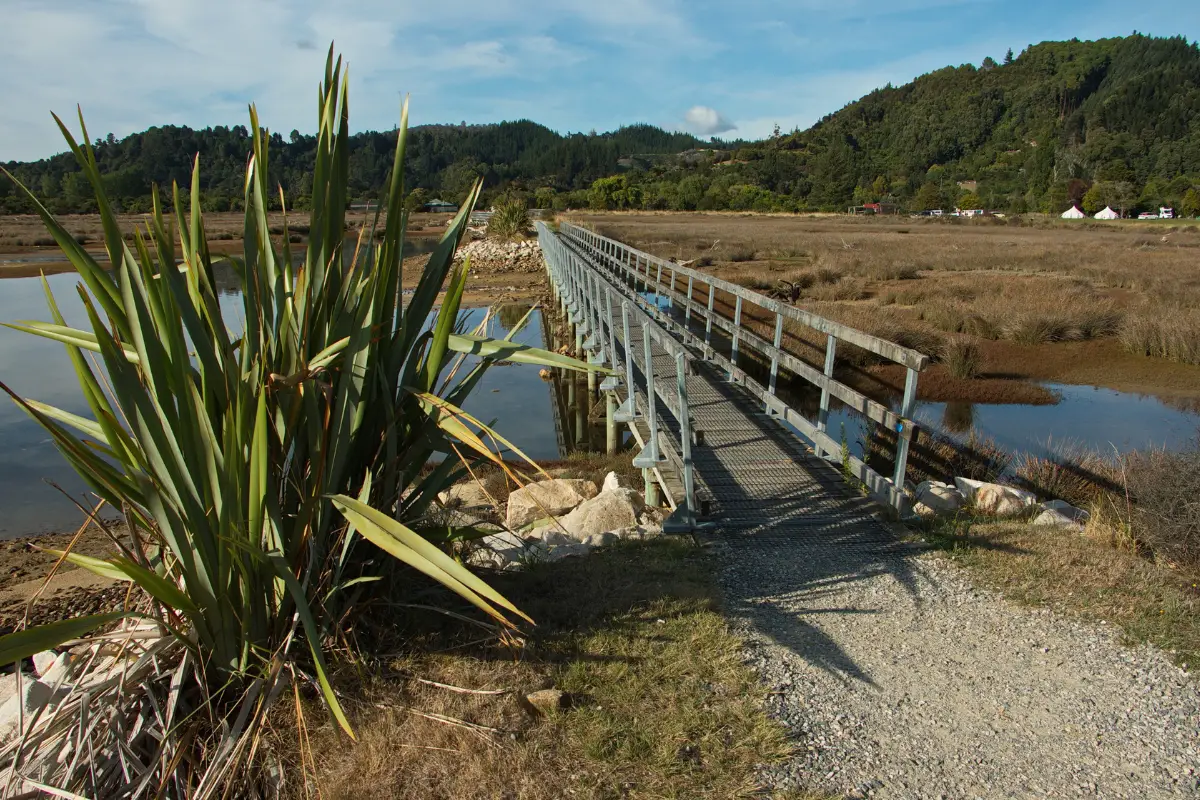
Meeting other hikers and camaraderie.
Along the trail, I met other adventurers with stories. A quick snack or piece of advice made for an excellent bonding opportunity. “Always take a moment to soak it in,” shared a seasoned trekker with a smile.
This particular fellowship served as a reminder of human connection in the midst of nature’s grandeur.
The Challenge of the Last Stretch.
As I neared the end of the leg from Torrent Bay Anchorage, my legs were getting used to the distance, but I was getting there. As I pushed through this challenge, I kept reminding myself that every step was a victory.
A small group of us clapped and pushed one another on.
Camping at Anchorage Bay with a Starlit Reward.
At Anchorage Bay, I pitched my campsite under the stars. The day’s exertion dropped away as I lay there, listening to the gentle lap of waves on the shore.
The tranquility of the night was an appropriate reward for the journey’s efforts—a natural luxury that one cannot just book or reserve.
Top Tips for Your Hike
- Check the tide tables before crossing.
- Bring more water than you believe you will need, and filter if needed.
- Wear sturdy shoes for beaches and forest trails.
- Keep a watch on the wildlife and respect its habitats.
- Take breaks to take pleasure in the views and reflect on the journey.
- Connect with other hikers, but also take pleasure in the solitude.
- Book your campsites early to secure a spot during peak season.
What Not to Forget on the Abel Tasman Coast Track
- Do not forget a map along with a compass; technology may fail you in remote places.
- Never ignore the power of the sun; bring sunscreen and a hat.
- Avoid underestimating the weather’s changeability by packing layers along with a raincoat.
- Don’t leave your first aid kit behind; even basic supplies are able to help in emergencies.
- Remember, everybody must take care of the environment; pack out what you pack in.
How long does it take to hike from Bark Bay to Anchorage?
Normally, walkers can travel the roughly four-hour distance between Bark Bay and Anchorage, Alaska. This duration provides you with time to enjoy the scenery without being rushed in case tide times are right for your trip.
Is the trail between Bark Bay and Anchorage suitable for beginners?
Most definitely! The path is maintained and marked so that hikers with basic experience and fitness can access it. Wear comfortable footwear and drink lots of water.
Are there tidal crossings along the trail?
Yes, there are tide crossings. Check tide tables before you set off, as parts of the track become impassable at high tide. Planning ahead is crucial to a safe hike.
What should I pack for the hike?
Along with your adventurous spirit, bring water, snacks, sunscreen, weather-appropriate clothes, and a camera to record the coastal views. Packing light and easy will keep you at ease on the trail.
Can I find places to rest or buy food along the way?
Although there are rest spots and toilets, choices for purchasing provisions are scarce. Obtain supplies before you trek to keep yourself fueled and hydrated.
Are there any camping sites near the track?
Affirmative. For people looking to sleep under the stars, both Bark Bay and Anchorage have campsites. Book early during peak season to secure a spot.
What kind of wildlife might I encounter on the hike?
Watch out for birdlife, including fantails and bellbirds. You may actually see a fur seal, if you happen to be lucky. Nonetheless, the wildlife is best admired from a distance to preserve their natural habitat.
Is the Abel Tasman Coast Track open year-round?
Yes, the track is actually open year-round for hikers. Summer offers the most sun, while spring and autumn present a quieter trail. Winter hikes can be possible. Just be mindful of shorter days and possibly cooler weather.
Will I need a permit to go hiking between Bark Bay and Anchorage?
No permit is needed for this day’s hike. But in case your adventure spirits take you camping overnight, you will want to get your camping or hut permit from the Department of Conservation.
What is the best way to reach Bark Bay to start the hike?
The bay is reached by water taxi—an excellent way to begin a hike. Or more experienced hikers might begin from another point on the track and hike to Bark Bay.
Final Thoughts
Lacing up my boots and hitting the Abel Tasman Coast Track from Bark Bay to Anchorage has been an enriching experience. Apart from the raw beauty of the landscape, the feeling of achievement upon reaching Anchorage felt gratifying.
It is a trail that makes you stretch your legs as well as your wonder at every turn. Whether you are an eager novice or an experienced trailblazer, this stretch of the journey is both charming and challenging.
My advice? Take it easy, breathe in the salty air, and let the path lead you to new discoveries along one of New Zealand’s most beautiful coastlines.

